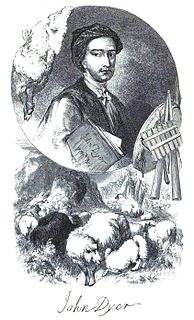A Quote by Vernon Howard
The genuinely spiritual person is one who has lost all desire to be anyone but exactly who he is, without labels and without apologies. He is what he is and that's all there's is to it. Such a man is undivided, uncomplicated and contented.
Related Quotes
Without the power of intelligence there is no capacity for spiritual knowledge; and without spiritual knowledge we cannot have the faith from which springs that hope whereby we grasp things of the future as though they were present. Without the power of desire there is no longing, and so no love, which is the issue of longing; for the property of desire is to love something. And without the incensive power, intensifying the desire for union with what is loved, there can be no peace, for peace is truly the complete and undisturbed possession of what is desired.
He was a foe without hate; a friend without treachery; a soldier without cruelty; a victor without oppression, and a victim without murmuring. He was a public officer without vices; a private citizen without wrong; a neighbor without reproach; a Christian without hypocrisy, and a man without guile. He was a Caesar, without his ambition; Frederick, without his tyranny; Napoleon, without his selfishness, and Washington, without his reward.
Muscles without strength, friendship without trust, opinion without risk, change without aesthetics, age without values, food without nourishment, power without fairness, facts without rigor, degrees without erudition, militarism without fortitude, progress without civilization, complication without depth, fluency without content; these are the sins to remember.
Aspirations must be pure and free of selfishness. Arising from the depths of the soul, aspirations are spiritual demands penetrating all of a human life and making it possible for a person to die for their sake. A person without aspirations is like a ship without a rudder or a horse without a bridle. Aspirations give consistent order to life.
The Americans of other blood must remember that the man who in good faith and without reservations gives up another country for this must in return receive exactly the same rights, not merely legal, but social and spiritual, that other Americans proudly possess. We of the United States belong to a new and separate nationality. We are all Americans and nothing else, and each, without regard to his birthplace, creed, or national origin, is entitled to exactly the same rights as all other Americans.
The absurd man will not commit suicide; he wants to live, without relinquishing any of his certainty, without a future, without hope, without illusions … and without resignation either. He stares at death with passionate attention and this fascination liberates him. He experiences the “divine irresponsibility” of the condemned man.
There is but one love of Jesus, as there is but one person in the poor - Jesus. We take vows of chastity to love Christ with undivided love; to be able to love him with undivided love we take a vow of poverty which frees us from all material possessions, and with that freedom we can love him with undivided love, and from this vow of undivided love we surrender ourselves totally to him in the person who takes his place.
When shall I at last retire into solitude alone, without companions, without joy and without sorrow, with only the sacred certainty that all is a dream? When, in my rags—without desires—shall I retire contented into the mountains? When, seeing that my body is merely sickness and crime, age and death, shall I—free, fearless, and blissful—retire to the forest? When? When, oh when?
Bibles read without prayer; sermons heard without prayer; marriages contracted without prayer; journeys undertaken without prayer; residences chosen without prayer; friendships formed without prayer; the daily act of prayer itself hurried over, or gone through without heart: these are the kind of downward steps by which many a Christian descends to a condition of spiritual palsy, or reaches the point where God allows them to have a tremendous fall.
We may live without poetry, music and art; We may live without conscience, and live without heart; We may live without friends; we may live without books; But civilized man cannot live without cooks. . . . He may live without books,-what is knowledge but grieving? He may live without hope,-what is hope but deceiving? He may live without love,-what is passion but pining? But where is the man that can live without dining?



































